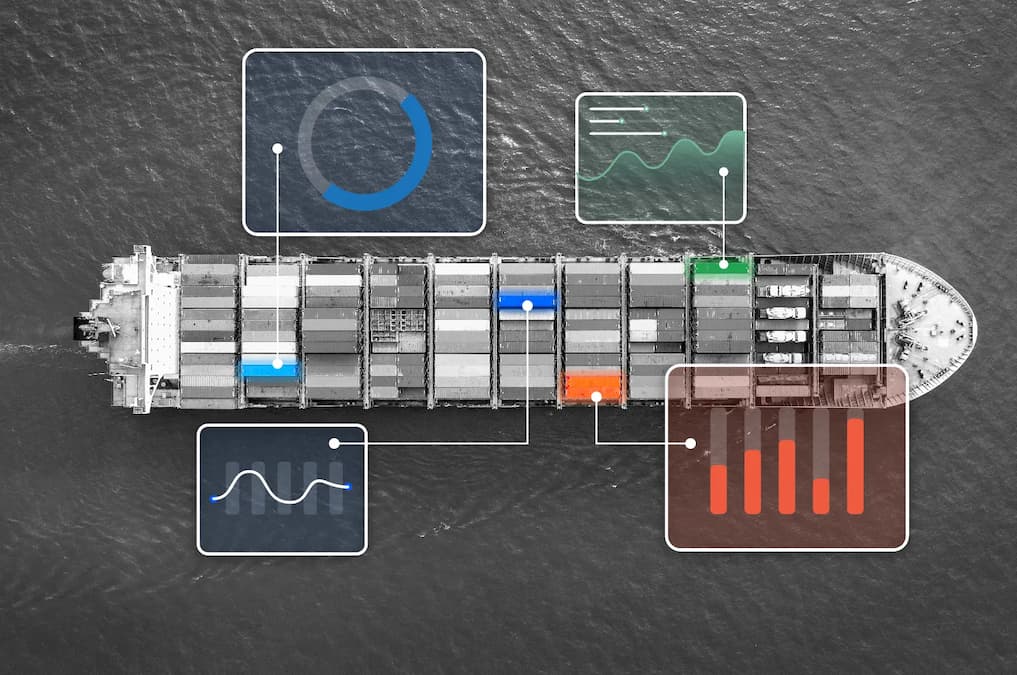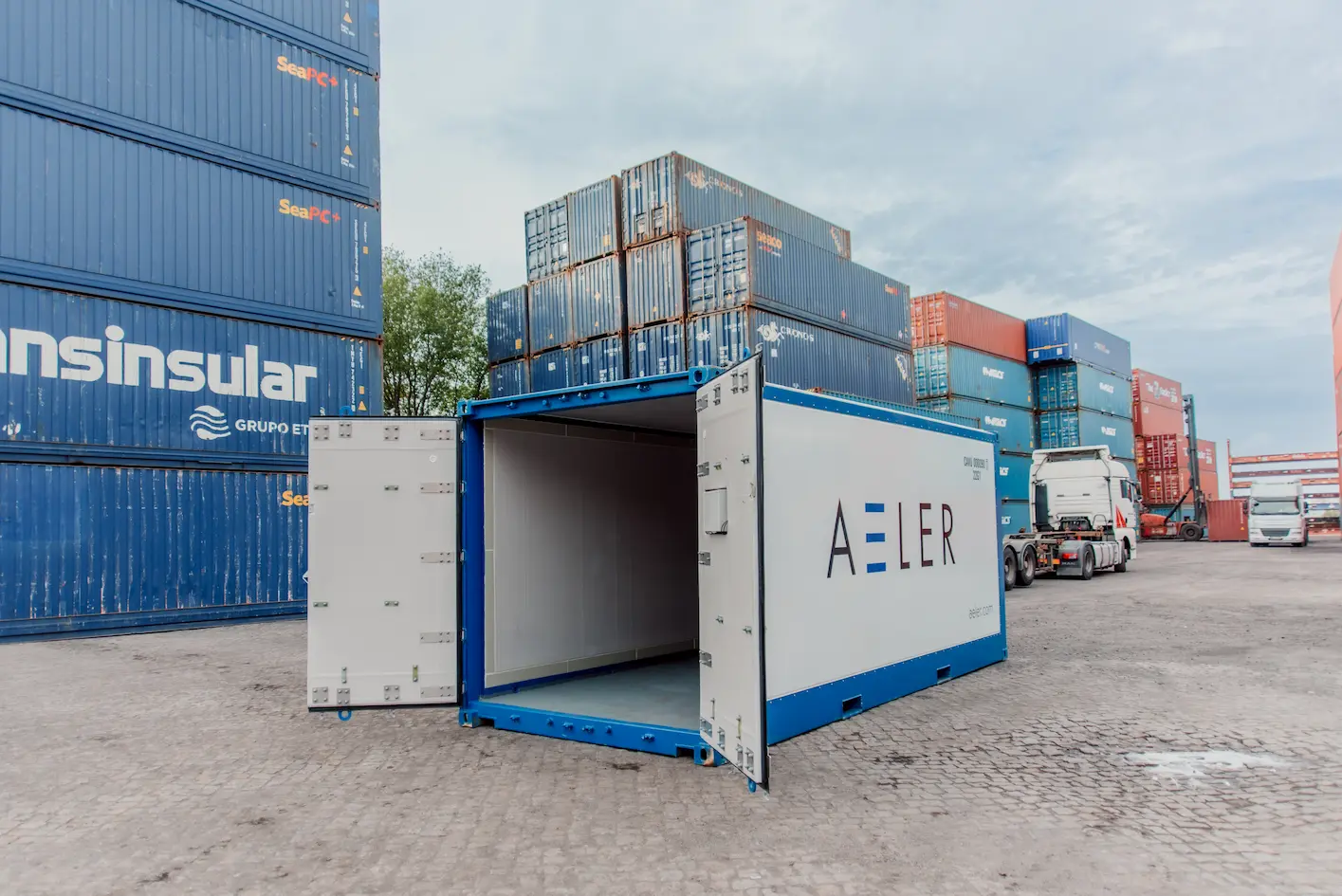How container fleet management drives operational excellence in logistics

Have you ever wondered how the global marketplace stays so interconnected and efficient? At the heart of this vast network is the art of logistics—managing the acquisition, storage, and transportation of resources to ensure the timely delivery of the right product to the right place.
Central to logistics processes are shipping containers and the sophisticated practice of container fleet management, which involves using data analysis and optimisation algorithms to position containers so that they are available when and where needed.
Optimal container fleet management is only possible with a container as a service (CaaS) model, where containers are rented and returned once used. Such a model allows container owners to find new customers at the point of arrival, ensuring containers are always utilised and not shipped empty to a new location.
Top 3 benefits of data-backed container fleet management
A well-managed container fleet is crucial for reducing costs and improving efficiency in logistics.
Minimising container repositioning
Data-driven fleet management strategies reduce the need for container repositioning. Often, empty shipping containers accumulate in areas of low demand and need to be transported to places with higher demand, which is costly and environmentally damaging. Advanced analytical tools help predict the demand more accurately and ensure containers are optimally utilised, thus minimising unnecessary transport and associated carbon emissions. With data-driven fleet management, operators can integrate containers into "circular routes" rather than just back-and-forth trips between points A and B.
Reducing demurrage and detention costs
Next, a key advantage of optimising container fleet management is reduced demurrage and detention costs. Demurrage charges accrue while filled shipping containers sit inside the terminal, awaiting pickup after being offloaded from ships or trains. Detention charges apply when shipping containers spend time outside the terminal, from collection to return.
Utilising advanced tools for real-time tracking and proactive management minimises these costly idle periods by ensuring containers are only used when required and are picked up as quickly as possible. This leads to direct cost savings and promotes a more sustainable supply chain by reducing emissions and improving overall operational efficiency.
Alleviating port congestion
Lastly, increasing the prevalence of effective container fleet management would significantly help alleviate port congestion. By more accurately predicting ship arrival times and streamlining the unloading processes, operators could reduce the dwell time of shipping containers at ports. Enhanced scheduling would ensure containers move more swiftly through terminals, improving throughput and minimising bottlenecks contributing to congestion.
To illustrate these benefits in action, let's explore a practical application in the industry.
Behind the scenes: innovating container fleet management with AELER

Operational excellence in logistics necessitates integrating innovative solutions to optimise every aspect of the supply chain. The heart of AELER's commitment to this vision is the powerful AELER Fleet Manager. This advanced platform acts as a comprehensive inventory management, customer order planning, and fleet health monitoring and optimisation tool, managing the rental and positioning of AELER shipping containers.
Fleet Manager provides a real-time overview of the container fleet, effectively serving as the "hidden brain" behind AELER's container operations. The platform offers a holistic view of the container fleet's state, including location, status, and current and future allocations, which is essential for operational managers aiming to optimise fleet movements. It also integrates with Enterprise Resource Planning (ERP) systems for third-party billing and customer management, providing visibility of real-time fleet health.
By utilising Fleet Manager, AELER streamlines its operations, significantly reduces waste and operational costs, and enhances sustainability, maintaining high standards of quality and efficiency. The platform includes an order booking system and provides prescriptive advice on allocations, ensuring shipping containers are always in the right state (with, for example, the IoT devices functioning), at the right place, and at the right time.
Looking ahead, Fleet Manager will soon feature algorithms-powered depot stock management optimisation based on current and forecasted demand, further enhancing AELER's ability to provide excellent service.
Driving operational excellence with enhanced container fleet management
For logistics professionals and Beneficial Cargo Owners (BCOs), embracing innovations is essential for staying competitive in a rapidly evolving market. AELER's commitment to operational excellence through innovative technological solutions showcases the transformative power of such advancements. This strategic approach not only boosts operational efficiency and customer service but also sets a new benchmark for sustainable logistics. By meticulously managing its containers fleet, AELER ensures high-quality service delivery, optimises resource use, and significantly reduces environmental impact, demonstrating a visionary path forward, ultimately driving towards a more sustainable future.
Contact us to learn how AELER containers can benefit your operations today.
Related resources


The new cool kid on the block: natively insulated shipping containers
The new cool kid on the block: natively insulated shipping containers


Smart containers: a comprehensive guide to the future of shipping
Smart containers: a comprehensive guide to the future of shipping
.jpg)
.jpg)





